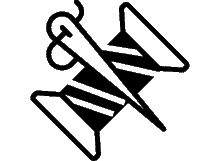| Re: OTD - 17th February (1958) - first diesel, Paddington to Bristol Temple Meads Posted by grahame at 09:24, 17th February 2025 |     |
First diesel express out of Paddington - 17th February 1958
Almost all expresses are now electric (though with BiMode trains required for later in their journey) and except at times of disruption to the electrics, there are now just 6 express diesel passenger departures a week left, and a single daily local diesel passenger service. Are there any middle distance passenger services still run by 165/166 units?
| Re: OTD - 17th February (1958) - first diesel, Paddington to Bristol Temple Meads Posted by Robin Summerhill at 21:28, 16th February 2022 |     |
I saw all 5 of them, probably at Bristol in 1962 or 1963, but not all in one go of course
Steam traction was still being used on the Londons in the summer 1963 timetable - someone recently told me there were two regular steam turns per day that summer
Steam was still being used for the annual hockey special to Wembley in 1964 and possibly 1965. But by then I was at a difficullt age (12 and 13). I was never sure if I went to see it for the engine or the girls...
| Re: OTD - 17th February (1958) - first diesel, Paddington to Bristol Temple Meads Posted by PhilWakely at 20:34, 16th February 2022 |     |
I remember a day trip from Pinhoe to Plymouth, by train via Newton Abbot, some time around 1965 and being very excited to 'cop' all five D6xx Warships in and around Laira and North Road. A time when it would have been an extremely rare occasion to see any of these east of Laira.
Although I don't think it is the inaugural run, I have a copy of a photograph taken by the late Norman Preedy of D601 'Ark Royal' about to leave Penzance with the Cornish Riviera. I cannot publish it here for copyright reasons, but here is a picture of her in rather more unfortunate circumstances at Barry scrapyard
| OTD - 17th February (1958) - first diesel, Paddington to Bristol Temple Meads Posted by grahame at 20:12, 16th February 2022 |     |
From the BBC
On the 17th February 1958, the first “Warship” diesel engine pulled a train from Paddington. Four months later, it was the turn of the Cornish Riviera to get the diesel treatment. The introduction of these locomotives meant the days of the King and Castle steam engines were numbered ...
"Active" was new the month before, but was only active until 1967 that year. One of a class of just 5 (class 41). From WikiPedia
All five locomotives were withdrawn on 30 December 1967. By this time they were non-standard, even for hydraulic designs, although according to Laira staff reliability was not a problem as many have thought.










